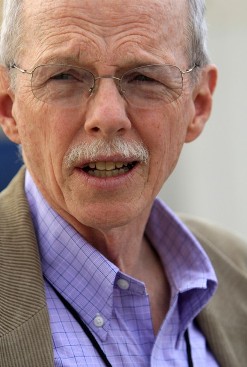US says rebel alliance in Sudan could polarise Arab-Muslim sentiments in the country
March 12, 2012 (KHARTOUM) – The United States has told an alliance of rebel groups fighting the Sudanese government on multiple fronts that they could risk provoking Arab and Muslim sentiments in the country.

The Sudan Revolutionary Front (SRF), formed last year, is an umbrella group for militias seeking to unseat the government in Khartoum. It includes the Sudan People’s Liberation Movement North (SPLM-N) and a number of Darfur rebel groups namely Justice and Equality Movement (JEM) as well as Sudan Liberation Movement of Abdel-Wahid Al-Nur (SLM-AW) and Minni Minnawi (SLM-MM).
It launched its first attack last month in the border state of South Kordofan. Sudan regularly says that the newly independent state of South Sudan is backing the rebels with arms and men.
“We told the alliance [of rebel groups] that we would not support overthrowing the government by force,” Smith said in answer to a question after his lunchtime speech to about 60 local activists and students at East Liberty Presbyterian Church.
According to the Pittsburgh Post Gazette newspaper, the US official said there is a chance that Arabs and Muslims in Sudan could feel they are being targeted by the rebel alliance which is comprised of mainly non-Arab groups.
The rebel alliance could “polarise the Arabs [who dominate the Sudanese government] against everyone else, so they can say, ‘Arabs are under attack. Islam is under attack,’ ” he said.
Instead, he said, the US government has told the alliance and particularly the Darfur rebels that they should “engage” the government in negotiations based on the Doha peace agreement signed in July last year by the government.
The Liberation and Justice Movement (LJM) is the only rebel group that signed the accord which was rejected by other movements JEM, SLM-MM and SLM-AW.
Smith also urged Darfur activists to realise the change that happened in the restive region from the height of the conflicts eight years ago.
“Our discussions with advocates is an important and ongoing thing,” he said. “We haven’t seen justice served in Darfur. But I think it’s important that people understand Darfur isn’t the same place it was in 2003 and 2004”.
One of the big changes in Darfur since then, Smith said, was that in 2003 just 18 percent of Darfur was considered urban settlements, but today it is 50 percent urban. This was a result of long residency in the internally displaced people (IDP) camps by millions of Darfuris who fled the fighting.
The US envoy also downplayed United Nations assessments that as security improves in Darfur some of the camp residents will try to move back home,
“These places aren’t just going to empty out” he said.
Mostly African insurgents in Darfur took up arms against the Arab dominated government in 2003, accusing the government in Khartoum of neglecting the remote territory.
Khartoum mobilised troops and allied Arab tribes to quell the rebellion, unleashing a wave of violence that the United Nations and other observers estimate may have killed hundreds of thousands of people.
The International Criminal Court has indicted Sudan’s President Omar Hassan al-Bashir and this month issued a fresh arrest warrant for Defence Minister Abdel Rahim Muhammad Hussein for war crimes in the region.
(ST)
